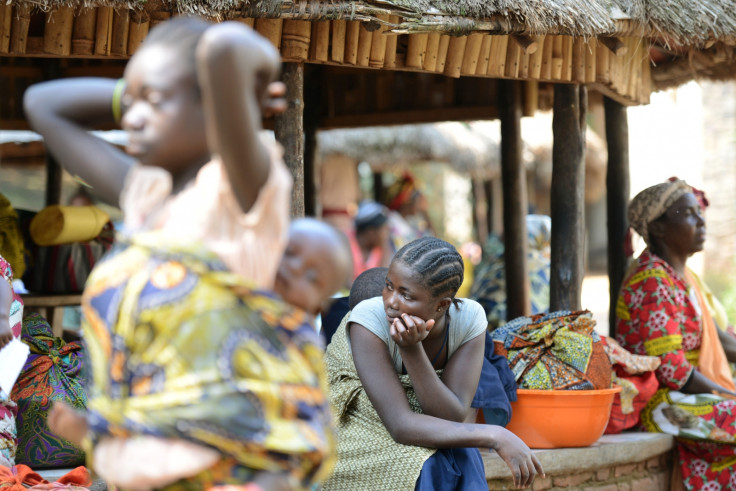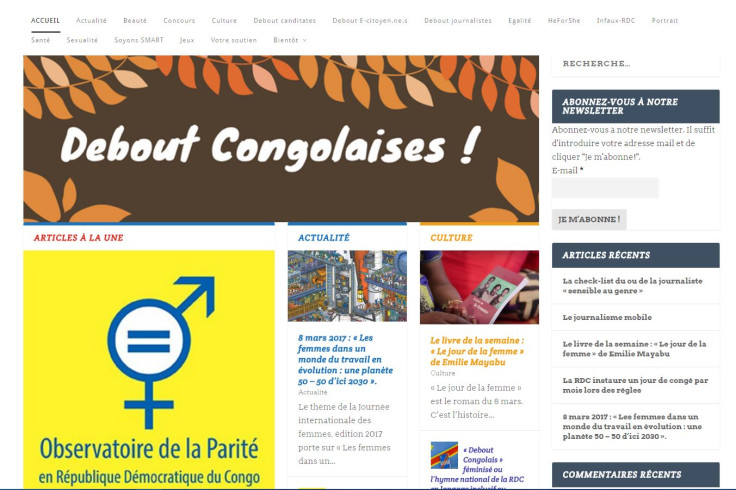DRC gets Debout Congolaises!, a new 'feminist' web magazine to promote women's rights
Magazine a novelty in a country where women and girls suffer disproportionately from high rates of violence.

The observatory of gender parity has launched a new web magazine to promote and defend women's rights in the Democratic Republic of Congo (DRC), a country where women and girls suffer disproportionately from high rates of violence and extreme poverty during times of conflict.
While peace has been restored in the nation of over 80 million, violence against women and girls remains pervasive, particularly in Congo's eastern provinces, which are still torn by civil strife.
The observatory of gender parity in the DRC on International Women's Day (8 March) launched a new web magazine, Debout Congolaises! which translates as 'Stand Up Congolese women!'.
IBTimes UK spoke to the director of the Observatoire de la Parité, Esperance Mawanzo, who curates and edits the online magazine.
"We looked at the way information is shared today by young people, girls and boys, on their smartphones. It was the reason that pushed us to publish this feminist web magazine. We wondered how we could touch this generation, especially in a country like the DRC."
The director of the watchdog – which works in partnership with representatives of the ministries concerned, independent experts, NGOs promoting women's rights and UN agencies – said the idea of a magazine aimed at promoting women's rights stemmed from the continued focus on the looming political crisis.

"Considering the recent political developments in DRC – everyone is talking about the 31 December agreement, we speak about the elections – we decided to write about these themes from our point of view," Mawanzo, who is known as 'Mama Parity', said.
Her comments come in the wake of a power-sharing deal struck between President Joseph Kabila and the opposition in the hope it would ensure the country could finally move towards its first peaceful democratic handover. Issues regarding the implementation of the agreement and upcoming election and the rise of violence in several provinces have made the headlines as of late.
"One of the reasons that pushed us to launch the magazine is to show that political issues are not the only ones affecting the Congolese woman today – she is also deeply affected by health and education issues," Mawanzo said, highlighting how the magazine covers anything from cultural news to sexual education, and profiles personalities such as female electoral candidates and journalists.
"We tried to combine all these issues that fall in the promotion of equality between genders." One of the big themes covered by Debout Congolaises is sexuality, which remains a taboo discussion. "Young women don't speak about sex, or menstruation, with the families. Women are not at the same level as men today."
When asked what message she would like to spread to readers of both sexes, Mawanzo said she is hoping young women will subscribe to the magazine, then use the comment section of the website to share ideas, and explain issues to others.
"We need to be working towards women's real fulfilment, more generally," she added. The magazine, which is accessible on www.deboutcongolaises.org, is yet to find external financing.
© Copyright IBTimes 2025. All rights reserved.






















